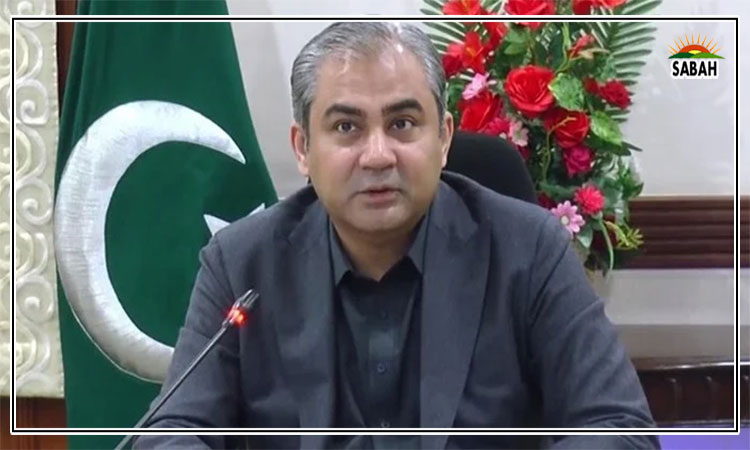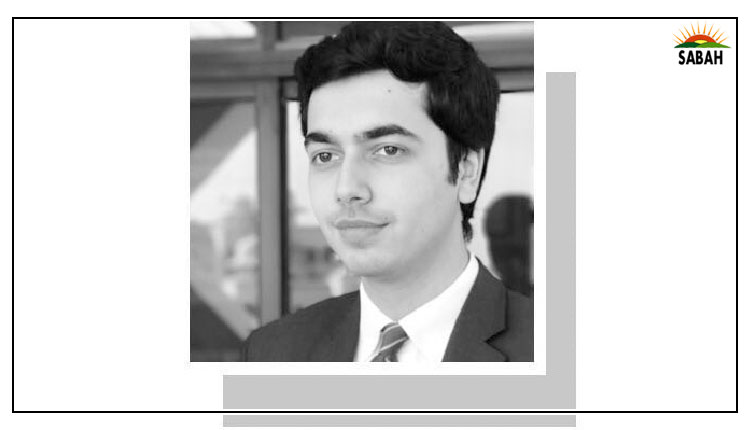The main thing….Asad Rahim Khan
AROUND this time a year ago, the Constitution was at risk. To frustrate the will of parliament, the deputy Speaker had thrown out its vote of no-confidence against a falling prime minister. But the Supreme Court stepped in: it took suo motu, undid the Speakers ruling, and restored the Assembly.
And the bells tolled loud and long: We profusely thank the Supreme Court, said Shehbaz Sharif. PTI partisans, meanwhile, screamed blue murder about biased judges.
Amid all the noise though, there was little debate with a few exceptions about whether the opposition was justified in going for the vote. Or whether the chief justice should form a full court of his own accord. Or the nature of suo motu itself.
And perhaps rightly so: as senior counsel Feisal H. Naqvi quoted recently: The main thing is to keep the main thing the main thing.
It remains for the court to regulate itself.
The main thing last April was a prime minister trying to keep his enemies out of power by violating the Constitution. The Supreme Court stopped him. The main thing this April is a prime minister trying to keep his enemies out of power by violating the Constitution: delaying polls in two provinces set for 90 days. The Supreme Court stopped him again. But this time, the discussion is about everything but: from the regulation of suo motu to the formation of benches to the floods of 1988.
And yet whats triggering this national nosebleed is clear: a widely despised minority government trying to prevent a specific outcome elections within 90 days. The same gents once delirious with joy over the chief justices powers now weep tears of rage.
But none of the excuses trotted out so far pass muster. Consider a few: could the chief ministers dissolve their assemblies? (Yes, because they did it as provided for in the Constitution one fresh from a vote of confidence in Punjab; the other with a thumping majority in KP.)
Then, could the chief justice take suo motu at all? (Yes, because of democracys destruction when the ECP broke the law, the governors shrugged, and all refused to obey the direction of the Lahore High Courts Justice Jawad Hassan mandating 90 days.)
Then, what about a full court? (While theres no harm, no law or precedent warrants one; nor is this a case of first impression, just the glaringly obvious: elections must be held in 90 days. The last full court we had was for whether the Constitution had a basic structure during the military courts case; it went on to deliver the silliest, most divided, and most incoherent plurality in history.)
As law students know, these are all Tamizuddin-esque sideshows. In Tamizuddin, justice Munir never actually decided the main thing: whether the assembly was sovereign. He twiddled his thumbs over technicalities instead, and wrecked democracy.
This time, however, its a different story: the same Bandial court that restored the Assembly the PTI government aborted, again upheld the law on March 1 polls within 90 days.
Hence also the unity regimes latest clownish attempt la Israels Netanyahu to declaw the judiciary: a bill that snatches away the chief justices powers to take suo motu and form its benches, spreading it over a committee of three, with a fresh appeal that all our disqualified-for-lifers are rubbing their hands over.
But seeing as naughty thoughts shouldnt be pegged to the legislature, lets look at the law. Most legal eagles point to Article 191 in its favour, which reads: Subject to the Constitution and law, the Supreme Court may make rules regulating the practice and procedure of the Court. The law in question, they argue, being the new bill.
Only, a five-member bench has already held the conferral, and exercise of suo motu isnt a matter of procedure at all: The tripartite categorisation of the judicial process, held Justice Munib Akhtar, is not a matter of mere procedure; it is part of the very essence of the judicial power.
The court has elsewhere reaffirmed the clause subject to law doesnt mean a statute can control or curtail the power conferred on the superior Courts by this Article. It remains for the court to regulate itself.
Even otherwise, Item 55 of the Federal Legislative List excludes parliament from legislating on the courts powers or jurisdiction (like grafting new floors of appeal on top whats already in the supreme text). If PDM wants to interfere, it must amend the Constitution, not pass some bill at midnight under a banana tree.
Finally, a thought to actual practice: judges must themselves step away from samosa prices and policy. But the suo motu is the natural result of facing an all-out assault by Musharraf, and winning.
Diffusing that power by three, given these divides, renders it dysfunctional the last hurdle protecting an independent judiciary. Then back we go to Quetta registries, to judges yanked by the hair.
There can be no more of that.
The writer is a barrister.
Courtesy Dawn, April 1st, 2023












